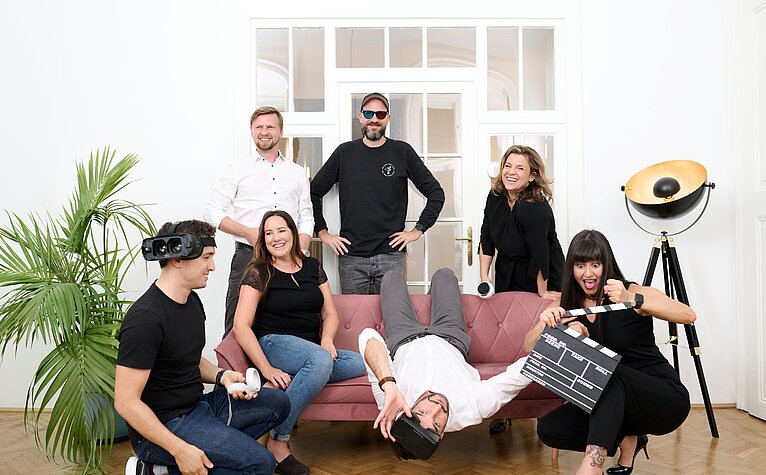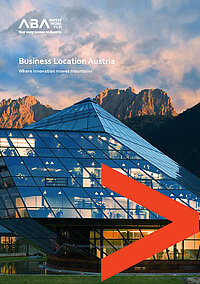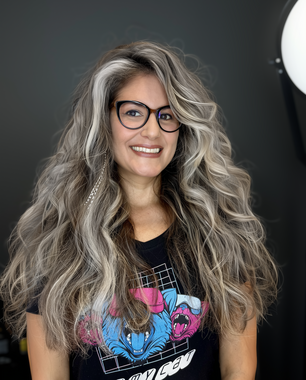 © Florentina Olareanu
© Florentina Olareanu
XR: How Austria became a recognised player
Austria's most recognized and prestigious studio dedicated to applied immersive entertainment is “vrisch”. Paraguayan-born Co-founder & CCO Gabriella Chihan Stanley talks about setting up a business and living in Vienna as well as building a successful XR community, which also enabled the hosting of the Augmented World Expo. She also discusses her vision of VR in 2040, what she personally appreciates in Austria and her gratitude for being empowered as a female founder.
Interview with Gabriella Chihan Stanley, Co-founder & CCO of vrischvrisch ()
You are the co-founder of vrisch, one of Austria's most recognised and prestigious studios dedicated to applied immersive entertainment. What exactly does vrisch do?
What we do at vrisch is use the engagement of entertainment, the versatility of technology, the beauty of creativity, and the depth of human experience for our audiences to learn, understand, and have fun with the world around them.
The international XR community met for the second time in Vienna at the Augmented World Expo (AWE) EU in October 2024. What is your personal impression of the AWE and what significance does this event have for the Austrian capital?
A major reason why the AWE decided to choose Vienna as its new headquarters was because of the city’s flourishing XR community. I’m very proud of this because we at XRVienna have been working extensively on bridging local companies, institutions, and entrepreneurs with the international XR scene, successfully positioning Austria as a prominent player on the XR map. Having gained the attention of such a prestigious conference proved to us that there is not only outstanding talent in XR in Austria, but also a united community involved in an ongoing collaboration and knowledge exchange.
You and your husband Axel Dietrich founded vrisch in 2019. Why did you choose Vienna? What support did you receive?
We chose Vienna for both personal and professional reasons. One personal reason was that we wanted to start a family, and Vienna offers incredible support when it comes to education, health care, and green spaces. From a professional perspective, we were eager to establish our company in a country that invests so much in funding new projects. In other countries, we would have had to rely heavily on private investors or simply bootstrapping our way to innovation. On a personal note, as a woman, I’ve never received such extensive support as a female entrepreneur as what I have experienced in Austria. As a South American, I never dared to even dream this was possible.
What advantages does Austria offer as a business location, especially for companies in the field of VR and AR, and also in terms of cooperating with universities and research institutions?
Austria is an incredible fertile ground for knowledge exchange and a diversity of ideas. Austria offers clear advantages to anyone working in XR in Austria or considering this. They include the country’s commitment to creating opportunities for VR/AR companies to obtain financial support for innovative initiatives, to facilitating networking with local and international professionals and ensuring meaningful and responsible growth of the industry by setting up platforms for cross-disciplinary dialogue.
You also founded ‘XRVienna’, the first and biggest XR community in Vienna. What does the exchange and collaboration within the scene look like? How has the community developed in recent years?
What started in 2015 as a handful of friends creating a meetup to find out who else was out there in the industry, what they knew, and how we could join forces as small companies to tackle bigger projects ended up in a 1300+ member nurturing environment. This benefits both XR professionals and potential XR clients, enabling them to learn together and give and receive feedback. From the very beginning, we focused on the human aspect of our XR work, letting go of unnecessary expectations that could hinder our bonds. Under our roof, a newbie has the value of someone in the industry with a fresh mind who offers new creative approaches to problem-solving and incredible amounts of motivation. In contrast, a veteran’s value lies in her or his vast experiential knowledge and resilience gathered throughout the years. The community has slowly developed into a place where members partner up for projects, suggest one another to potential clients based on their approach to technology, and has even emerged as a group where you can be vulnerable and get the emotional support you need when times get tough. Throughout the years, we also attracted key partners such as TED AI, Women in Immersive Tech, Euromersive, and, of course, AWE. They help us to internationalize our community and members.
Virtual reality was very hyped for a long time, then came the disillusionment. Where is VR already being used today and what is your personal vision for the industry as a whole in 2040?
I’m actually relieved that VR went through the disillusionment phase because, as an XR company, we can now navigate our industry (and the clients that are interested in developing a VR project) without the misleading promotional content one sees around when a technology is new and hyped. I should also mention the ungrounded promises and noise generated by people and companies that are in it just to ride the hype wave. When the wave recedes, the hype-riders move on to the next trend, the noise decreases, and professionals like us focusing on value-driven innovation. We understand the value of taking time to perfect skills can actually have access to more significant projects. I don’t want to be in the shoes of someone trying to develop a VR project some years ago and having to sift through the flood of tech provider options, self-proclaimed experts, and post-produced promises that don’t exist.
Look at what’s happening with AI today. VR was in that exact point back in 2015. This audience refinement and filtering of professionals are and will lead to more effective and sustainable tech solutions. This is simply due to the fact that there will be more understanding from both sides (client and company) of the use of VR linked to solving a specific challenge that can be most effectively solved with this technology. Instead of trying to see how to make VR fit into the project, the question now is “I want to use the immersion/safety/versatility/engagement of VR to solve this specific challenge.” I currently see VR being used across industries but with a lot more understanding and substance. The obvious case is training and B2B solutions.
But the advantage of VR remains its power to bring the undivided attention of its users to the present moment, isolated from distractions. And this attribute is not limited to training or corporate solutions but can also be applied to environmental education, arts and culture, and even the retail sector, just to name a few areas. My personal vision for the industry as a whole in 2040 is one of considerably smaller and more practical hardware, content that incorporates several technologies that act as enhancers of one another (for example, VR and AI, or VR and neurotechnology). This will do more than just allow these experiences or solutions to solve challenges, provide knowledge, and entertain audiences. It will also help humans understanding physical reality, themselves, and one another on a richer and much deeper level. This is actually something I’m working on at the moment.
You were born in Paraguay and have lived in Barcelona and New York. What qualities does Austria have in general, but above all as a centre of innovation and business and also as a place to live?
What Austria has that I couldn’t find in the other countries I lived in is the strategic support for innovation and business that goes hand in hand with an exceptional quality of life. Both of these qualities nurture an ecosystem where one can thrive holistically instead of having to choose between quality of work and life. Moreover, the stability one gains through a functioning social security system provides a stable, fertile ground for entrepreneurship. As a female founder, I’ve never experienced such a level of support and respect like here in Austria. I don’t have to worry about my work being seen as a hobby or a side job next to my obligation to be the main manager of my home and the sole person responsible for my kid. Austria allows me to demonstrate what I always knew I was: a highly intelligent, value-driven innovator who doesn’t shy away from leadership.
Read more about deep tech in AustriaRead more about deep tech in Austria ()
ABA Help Desk
Let's talk

Top Download Invest

- Top infrastructure & central location
- Stable framework conditions
- Supportive environment for innovation
